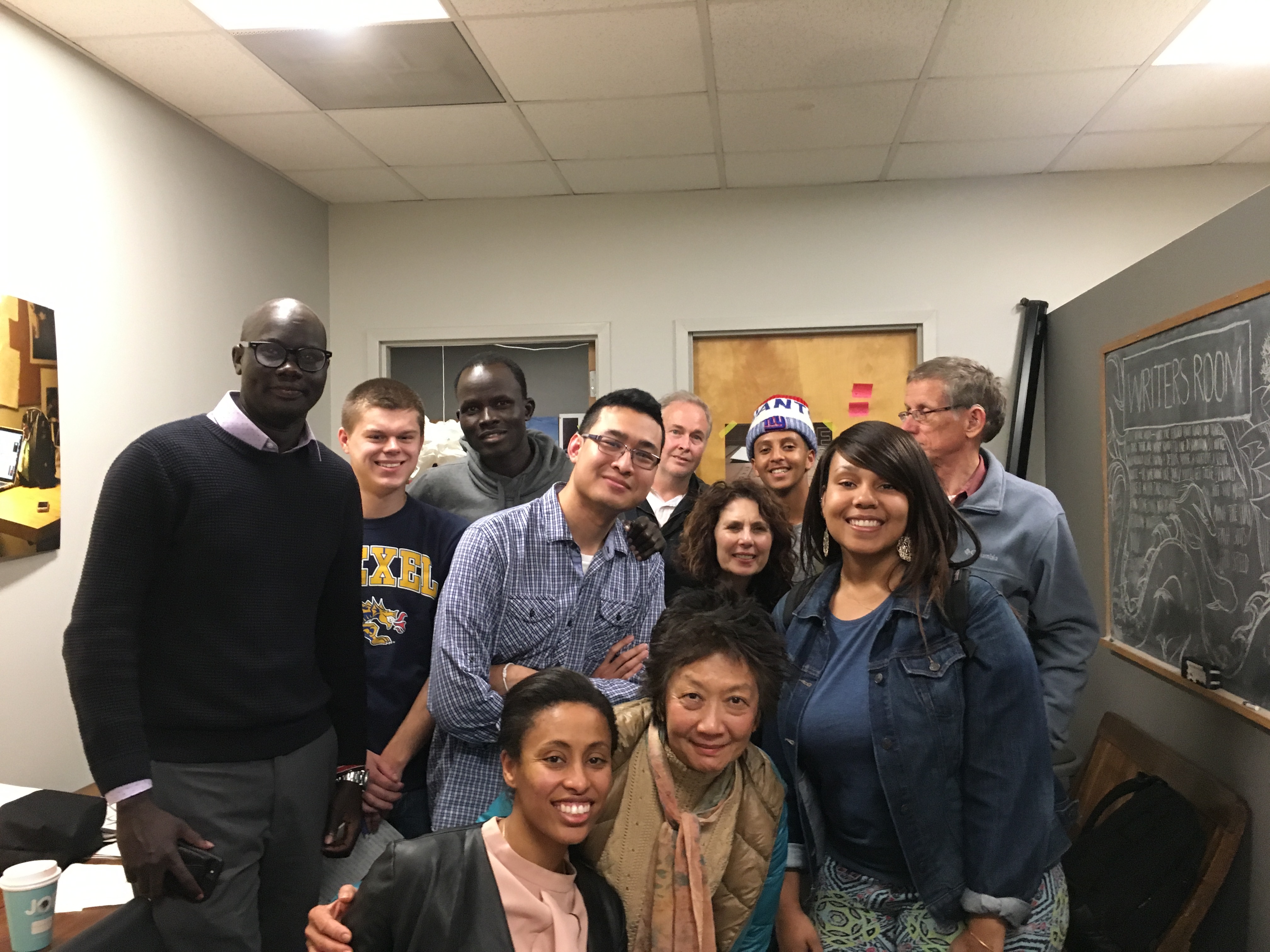
Drexel PEN Society, a student-led group at Drexel University committed to promoting international freedom of speech, held a discussion Nov. 8 in support of a Philadelphia man. According to Drexel University English professor Harriet Levin Millan, Ajak has been detained unfairly.
Peter Biar Ajak, 34, has been behind bars in South Sudan — the country he was born in — since August, after he made a controversial statement against the country on television while in Kenya.
“Right now, there’s so much injustice happening in South Sudan,” Millan said, explaining how the new nation has been struggling. South Sudan became an independent country in 2011.
The Dinka and Nuer, the nation’s two largest tribes, are constantly battling one another for resources, and in an attempt to escape genocide, just under 4,000 “lost boys” — including Ajak — were granted political asylum in the United States in 2001.
Millan, the advisor of the PEN Society, said that it is beyond comprehensible that Ajak is sitting in prison, so she organized the event to try to make an impact. A group of Drexel students, faculty and some of Ajak’s friends attended the discussion.
Philadelphia was Ajak’s first home in the United States, and was the beginning of his success story, Millan said. He was hosted for many years in South Philadelphia by Dale Long, who has had different refugees living in his home all his life.
Ajak attended Horace Furness High School in South Philadelphia, Long said, and went on to attend Central High School and La Salle University. From the moment Ajak arrived, his superior academic ability was clear.
“He convinced me and his school — which was Furness in South Philly — that he wanted to skip a grade,” Long said. “He was just soaking things up.”
Aida Meskel, one of Ajak’s friends from La Salle, said that he also had a distinct charisma.
“There’s certain people that have this smile. It hits your soul when you see it — everybody says that about Peter.”
As Ajak continued in his education, their paths always crossed, Meskel said. After graduating from La Salle together, Ajak studied on a full scholarship at Harvard University and Meskel went to Boston University. From there, Ajak pursued his doctorate at the University of Cambridge, and Meskel studied in Switzerland.
“It’s kind of crazy having a college friend who got detained,” she said.
Ajak is one of the few “lost boys” who became successful and returned to South Sudan, according to Deng Garang Atem, a longtime family friend, who noted that Ajak’s education has helped him practice political activism around the globe.
Mary Yee, an administrator for the School District of Philadelphia, has known Ajak since his first years in the United States, she said. She was in charge of the Newcomer Center, an alternative high school for immigrant youth with little or interrupted education.
“I’ve followed [Ajak] throughout the course of his life up to this time, and certainly, because he is an outspoken young person, and basically speaks truth to power,” Yee said. “I think [the leadership] in South Sudan fears his charisma.”
Long said Ajak’s strong leadership qualities were clear since he arrived in the country.
“I could tell he was going to be a future leader — that was not even a question,” Long said.
James Deng, also a “lost boy” of Sudan, met Ajak in the United States about 18 years ago. He said Ajak is being held in jail and treated as if he committed a crime, though the South Sudanese government has found no hard evidence of rebellion.
Meskel said evidence is not necessarily needed for an arrest in South Sudan. The government can detain first and look for evidence later. That is what happened to Ajak, she said.

Sakyra Hayes, a freshman studying global studies at Drexel who attended the event, said it was enriching to hear perspectives that are often overlooked.
“Especially in the story of Peter, someone who was just living his life and very passionate and outspoken, to have his rights completely taken away was an eyeopener,” Hayes said.
Millan said her heart was broken when she heard Ajak was imprisoned. She mentioned there could not be a better time to defend free speech.
Drexel’s PEN Society, a part of PEN America with centers in over 30 countries, is the only undergraduate chapter of its kind, focusing on free speech. Students interested in learning more about Peter Biar Ajak’s story, how to help, or how to get involved with the Drexel PEN Society should contact professor Harriet Levin Millan directly at [email protected].
Correction: Professor Millan was mistakenly misquoted in last week’s issue as referring to Sudan. She was actually referring to South Sudan. The Triangle regrets this error.


